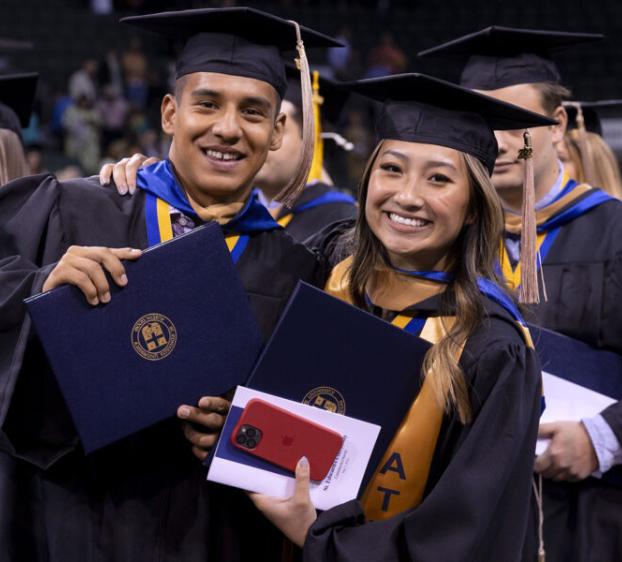Discover the Forces Behind Social Inequality and Social Change
As a Sociology major, you’ll learn about individual and group identities connected to race, class, gender, sexuality, age, culture and religion. Students will also study the causes and consequences of human beliefs and behavior from a scientific perspective.
Why earn your Sociology degree at St. Edward’s?
Whether you’re looking to pursue a career in social services or sociological research, one thing is certain: The advantages of your St. Edward’s education will prepare you to succeed. You’ll find opportunities in and outside the classroom to learn, give back and achieve your goals. And your mentors will support you every step of the way.
Gain skills through invaluable internship opportunities
Outside the classroom, you’ll apply your skills by interning at places such as child welfare organizations, nonprofits that assist with underserved communities, girls empowerment clubs, family violence shelters or environmental and human rights advocacy groups.
Build relationships with your professors
You’ll learn in small classes taught by award-winning professors who make a point of getting to know you and becoming your trusted advisors. They’ll help you identify and focus on your goals, and provide guidance and insight during and after your college years.

Reap the Rewards of Austin
Austin is the home base for many nonprofits and advocacy groups that work to address social inequality issues. As a Sociology major, you’ll have the chance to learn from experts who share similar passions for changing the lives of various underserved communities across the area and beyond.
What do our graduates do?
Sociology majors go on to a variety of careers and graduate schools from St. Edward’s. Here’s a sample.
- English Teaching Assistant in the Fulbright U.S. Student Program
- Peace Corps member in Ecuador
- Senior associate in Client Solutions at the Gerson Lehrman Group
- Student in the Sociology PhD program at Washington State University in Pullman
- Donor relations and data coordinator at Foundation Communities, which provides supportive, affordable housing to families in need
Explore Details About a Degree in Sociology
Major Requirements: The Bachelor of Arts in Sociology requires 42 hours of major courses, which include a combination of different sociology classes, and some global studies, criminology, and psychology. In addition, students choose 9 hours of career-emphasis elective courses that help prepare them for future interests, such as graduate school or their career path in sociology.
Electives: Students complete 24 hours of elective courses in any area of study they choose. These courses do not have to relate to the major.
General Education Requirements: The degree requires 54 hours of general education courses that students complete over four years in addition to their major courses and electives.
View and download the full degree plan for our Sociology major (PDF).
A few examples of courses students in this major take:
Self and Society – Sociology is the study of how groups, organizations, and individuals behave in society. In this course you will learn how to ask sociological questions and analyze social life to understand how things like culture, socialization, power relations, social institutions and group interaction affect individuals.
Beauty, Bodies, and Sexuality – What is the definition of a “normal” and “beautiful” body? How do age, gender, race, social class, sexual orientation, and sexuality shape how bodies are perceived and treated? In this course you will examine these questions, as well as others, through an analysis of the historical and contemporary beliefs and social norms associated with beauty and sexuality.
Families and Intimate Relationships – Sociology is based on the idea that society organizes people’s lives and that individual experiences both reflect and reproduce cultural ideals and patterns. In this course you will explore how the family as a social institution interacts with other institutions and how these larger processes (economic, political, global) shape family, as well as how individual family experiences shape the social world.
What You Will Learn
Study institutions like family, politics and religion, and how power is distributed in society. Sociology helps you understand why some groups maintain the status quo while others upend and reshape society. It helps you see an event like a crime wave as the tip of an iceberg and identify the larger social and historical forces at work under the surface.
Research
Sociology majors learn methods for conducting research to understand social phenomena. You’ll have the opportunity to present your work at the St. Edward’s Symposium on Undergraduate Research and Creative Expression or at a professional academic conference, where you can learn about the careers in research and academia and build your network.
Internships
All Sociology majors complete an internship of at least 75 hours at a community organization with a mission focused on some form of social justice. Here is where you will apply your knowledge of social inequality; diversity and inclusion; critical thinking; effective communication; and social justice. Sociology majors recently have interned at the following sites:
- Texas Civil Rights Project
- People Organize in Defense of Earth and her Resources (PODER)
- Austin Partners in Education
- Casa Marianella
- Urban Roots
- Autism Society of Austin
- Breakthrough Central Texas
- Youth Advocacy
- Posada Esperanza
- Texas Victims Services Association
- Mothers Against Drunk Driving
- Trinity Center
- Girls Rock Camp! – Austin
- Interfaith Action of Central Texas
- Youth Rise Texas
- Communities in Schools
- Grassroots Leadership
- Go Austin/Vamos Austin
- The SAFE Alliance
- Texas Advocacy Project
- YWCA
- Sierra Club
- Mujeres Inspiradas en Sueños, Metas y Acciones
- Minorities for Equality in Economy, Education, Liberty and Justice Center
- National Alliance on Mental Illness
Service Opportunities
Campus Ministry offers numerous service programs open to all students, regardless of major or religious affiliation. Give back to your community and learn about real-world efforts to address the challenges you’ve learned about in class.
S.E.R.V.E Austin is a weekly, semester-long volunteer commitment at a specific site where you’ll develop relationships with immigrants and refugees, children at an after-school program, young adults working on their GED, the elderly or the formerly homeless.
S.E.R.V.E. 1 Day events are Saturday-morning programs that include breakfast, transportation to the site, lunch and a reflection. These one-day projects often involve physical labor, like cleaning up a park, removing invasive species or painting a school.
Service Break Experiences give you the chance to travel to another community, volunteer and learn about local life. SBEs are built on ongoing relationships between St. Edward’s and the service location and require students to prepare – educationally and spiritually – for several months beforehand. The trips incorporate structured reflections so you’ll integrate what you’ve learned and use it to fuel your charity and justice work going forward. A hallmark of SBEs is their emphasis on living simply – you’ll leave your phone and other luxuries behind.
Students who are interested in learning more about the science of human interaction or who will benefit from the expanded perspective in their chosen career should consider pursuing a minor in Sociology. The Sociology minor requires 18 hours of coursework.
Students who minor in Sociology are required to take the following courses:
- Self and Society
- Social Theory
- Topics in Sociology
- Race, Class and Gender
- Two upper-division sociology courses
At St. Edward’s, our faculty are outstanding scholars, practitioners, teachers and mentors who bring energy and enthusiasm to our vibrant learning community. They take pride in getting to know you, helping you achieve your goals and celebrating your successes.
View a list of our faculty members and their contact information on the Department of Applied Behavioral Analysis, Criminal Justice, Social Work, and Sociology webpage.

Earn Two Degrees in Five Years
With our Accelerated Graduate Pathways, you can complete your BA in Sociology and one of four master’s degrees in as little as five years, saving time and money. See details and requirements.
- Sociology to MS in Organizational Leadership
- Sociology to Master of Business Administration (MBA)
- Sociology to MS in Business Analytics
- Sociology to MS in Digital Marketing and Analytics
Success coaches and academic advisors guide you through undergraduate and graduate courses to maximize benefits.
